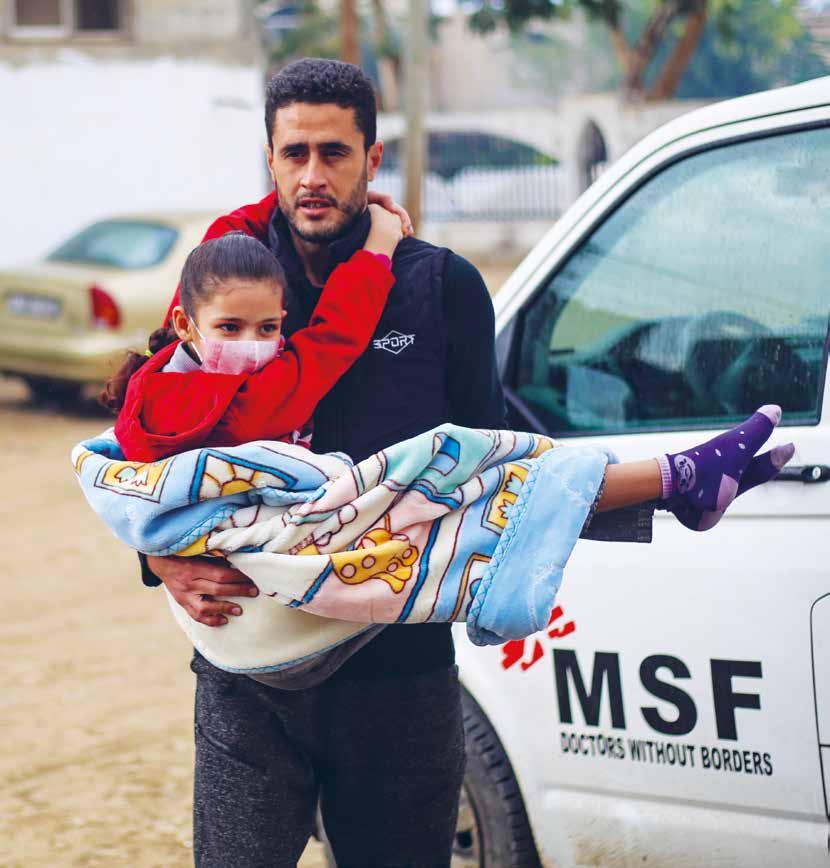SITUATION REPORT
19,000
Number of physiotherapy sessions conducted by MSF with 668 patients in Vinnytsia, Ukraine, since the project commenced in 2022.
1. UKRAINE
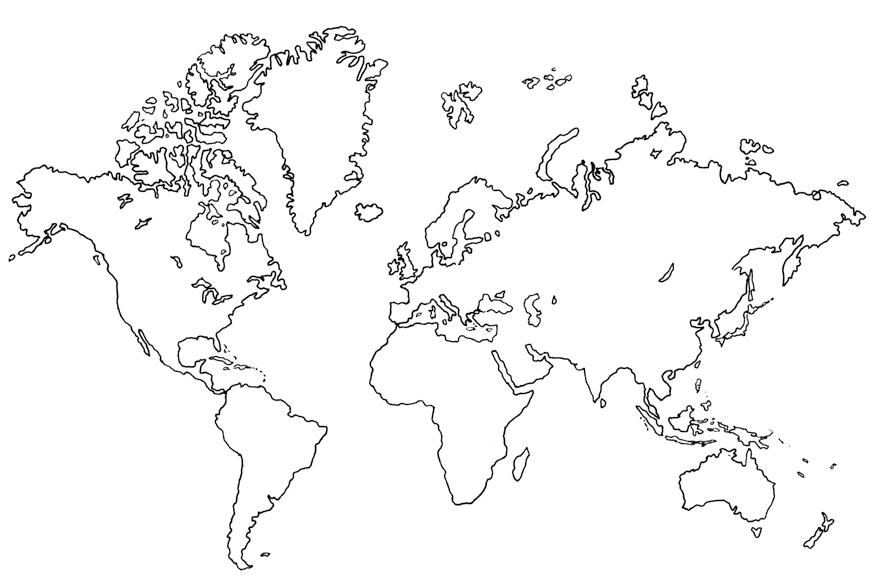
Horses are brought to a hospital in Vinnytsia, in western Ukraine, where MSF runs a rehabilitation project for warwounded patients, many of whom have had limbs amputated. Alongside extensive physiotherapy, MSF teams provide patients with mental health support, which includes trips to the cinema and time with animals. “During the activities, patients get to have a good time, try something new and understand that their injuries and traumas are not an obstacle to a full social life,” says MSF psychologist Larysa Hryhorenko.
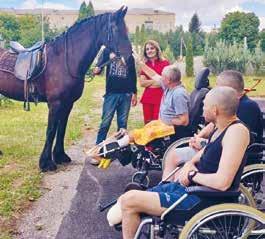
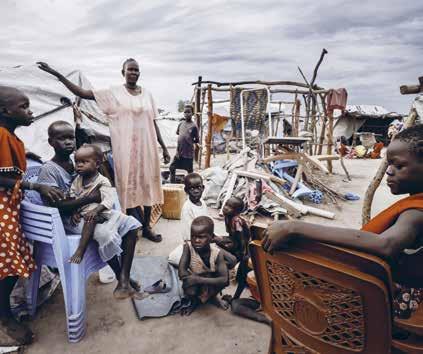
2. ABYEI SPECIAL ADMINISTRATIVE AREA
Women and children wait at a camp for displaced people in the Abyei Special Administrative Area, a disputed region claimed by both Sudan and South Sudan. MSF has provided medical care in the area since 1997, providing round-the-clock emergency treatment, inpatient care, surgery, maternal and neonatal care, treatment for chronic illnesses and mental health support.
3. MYANMAR
Gay Gay has been receiving treatment for HIV in Dawei for eight years. MSF has provided comprehensive HIV care in the area for the past 20 years and is now handing the project over to Myanmar’s National Aids Programme. “I took my first medication when I was 13 and have been feeling healthy since,” says Gay Gay.
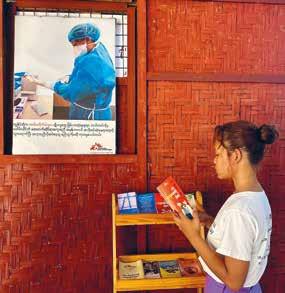
4. MALAWI
MSF head nurse Samuel Uduma prepares for work at Queen Elizabeth Central Hospital in Blantyre, where MSF runs a cervical cancer project. More than 4,000 Malawian women are diagnosed with cervical cancer every year and the country has the second highest mortality rate for the disease globally. Since 2018, MSF teams have been providing screening, consultations and outpatient treatment for pre-cancerous and cancerous lesions.
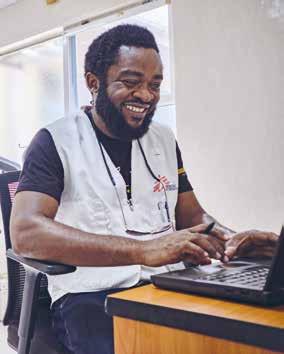
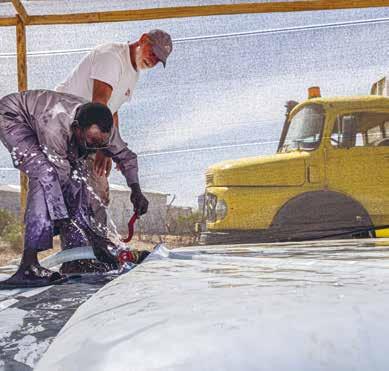
5. CHAD
MSF staff fill a water bladder in Metche camp, near the Sudanese border, where 40,000 people who fled the conflict in Sudan are desperately short of clean water. MSF is scaling up the provision and distribution of safe drinking water and is now one of the main providers of water in the camp.
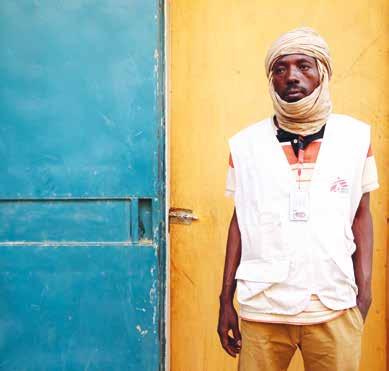
6. MALI
Dr Sidiki Souleymane is in charge of MSF’s medical activities in Douentza, Mopti region. Violence intensified in central and northern Mali in November, resulting in large numbers of people being injured and killed. MSF teams have been treating the wounded while continuing to provide free healthcare to people in the area.
2 DISPATCHES SPRING 2024 3 4 6 3 5 2
1
Photograph © MSF
Photograph © Sean Sutton/Panos Pictures
Photograph © MSF
Photograph © Diego Menjibar
Photograph © Seydou Camara/MSF
Photograph © Linda Nyholm/MSF
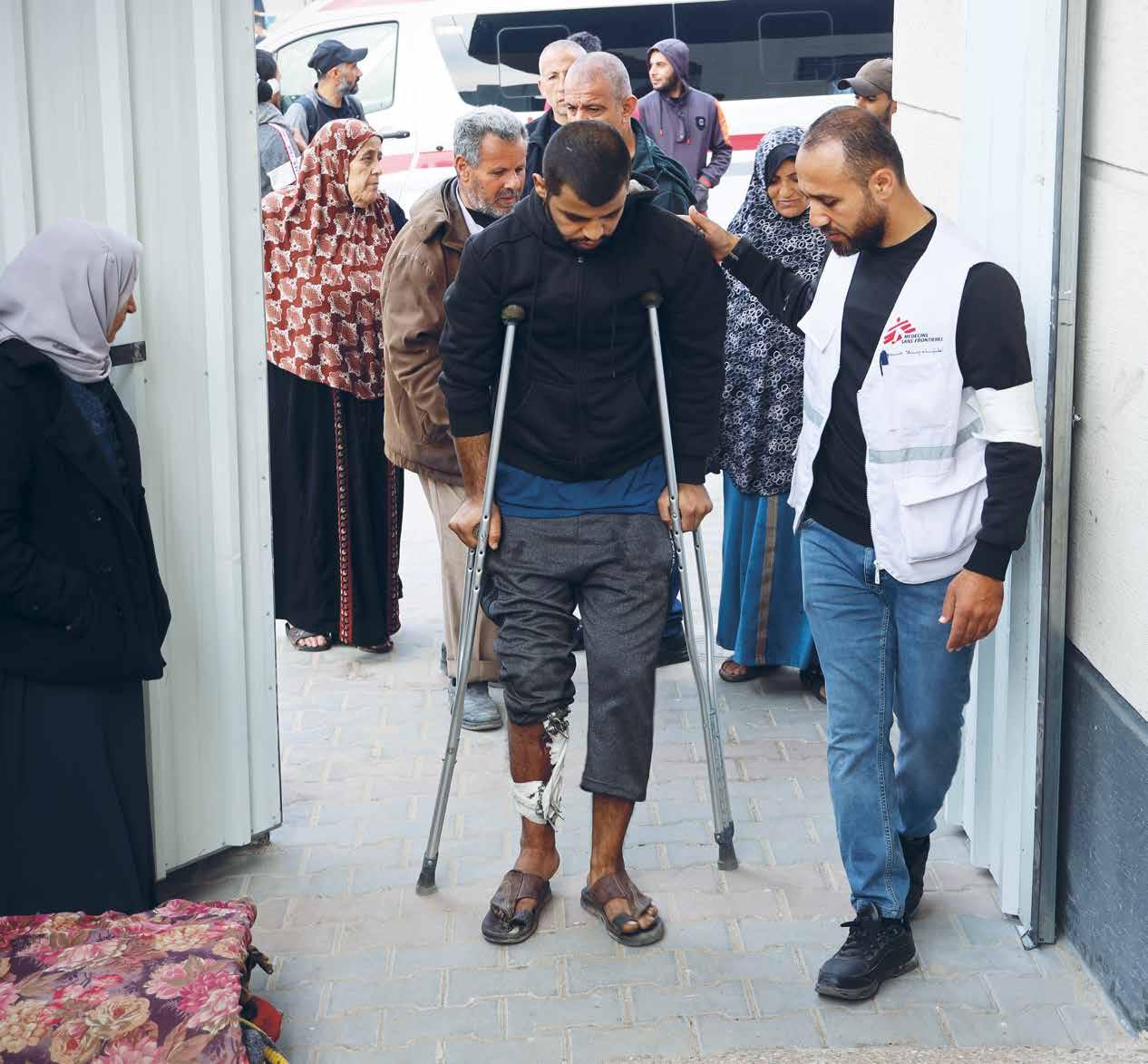
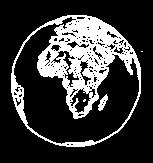
An

22 DECEMBER 2023
Gaza is somewhere that I have worked before, and I knew that things were going to be different this time. But it was still a massive shock to cross at Rafah and find ourselves encircled by people looking in the cars to see if we were bringing food or water.
There was this massive, overwhelming sensation of how desperate things have become here, after two-and-a-bit months of war.
One of the big problems here in Gaza is there are so many people who've been wounded that the hospitals are chaotic. Nasser hospital is not really a hospital anymore; it's more like a camp.
The place is filled with people milling around, trying to sleep, trying to find a corner to make their own, trying to find something to eat, to drink. So when patients are coming in, the staff are literally kneeling in the blood on the floor to try to save the life of a person, even intubating on the floor which is really extreme.
So many people told me about the loss of relatives and sometimes it’s just an incredibly long list of people that they lost in airstrikes. I think the sentiment for many people I've talked to is that Gaza is gone basically, there's nothing left. It's difficult for them to see a life here again. Which is very, very sad.”
24 DECEMBER 2023
“I'm at Nasser Hospital in Khan Younis, a city in the south of the Gaza Strip that's been the focus of Israeli ground operations for the last few weeks.
Outside the hospital, you can hear the bombs and the shells landing not too far away and inside the hospital, you see the results. When you look at the register of patients in the hospital, what you see is one single cause of injury: explosive injury.
We've got two operating theatres and at the moment in one is a 12-year-old girl with a gaping wound on her right hip. She's crying, she's distressed. And in the other, there is a guy, perhaps 25, his left leg amputated, his other leg fractured, with a metal external fixator drilled into the bone to keep it in place.
One thing I want to talk about is the dedication of our Palestinian colleagues. Most of them came here on 7 October, and they haven't left. And the scenes that they described, especially in the first month of the war, were just absolutely apocalyptic. Bodies torn into hundreds of pieces, burned by the force of the explosions. It’s really horrible.
SPRING 2024 5
AN MSF PROJECT COORDINATOR
AUDIO
GAZA
PHOTOGRAPHY MSF JACOB BURNS IS
WHO KEPT AN
DIARY OF HIS EXPERIENCES IN GAZA.
MSF staff member escorts a wounded patient into the MSF-run clinic at Rafah Indonesian Field Hospital in southern Gaza, 28 December 2023. Photograph © MSF
There’s one story that stuck with me. A woman we were operating on had fourth-degree burns down the front of her body. And she was burned so badly because one of her children caught fire after an explosion, through a bombing, and in order to try to put out the flames on her child’s body, she hugged the child to her, and in the process was so badly burned herself.”
25 DECEMBER 2023
“We slept at Nasser Hospital all together and had dinner there last night. This morning we woke up with the anaesthetist turning on the radio, hearing about what’s been going on in the war. The team saw that leaflets that had been dropped by the Israeli army calling for the evacuation of the area just behind and just in front of the hospital. There was very, very heavy bombing on Khan Younis.
This morning what I’m hearing from Palestinian colleagues is that the situation has now become so bad that they want to leave, but the situation is too dangerous for them to leave at the moment.
It would be another huge problem for healthcare in Gaza to lose another big hospital that is providing care to hundreds and hundreds of patients.
It seems we are being pushed into a corner in the south of Gaza, in Rafah, with fewer and fewer options to provide the healthcare that people so desperately need.”
26 DECEMBER 2023
“People are dismantling greenhouses, which have been abandoned during the war. People are chopping up fences with axes, just looking for anything that they can use or that they can sell.
Although you can see fruit and vegetables being sold, they’re so expensive that not many people are buying them, because they need to keep their money and it’s not a wise choice to buy so little food for so much money.
Any sort of aid they could rely on from neighbours or families is probably long exhausted. And I think that’s what led to the desperation that we see every day and that we continue to see with the aid convoys.
As soon as the convoys come out, they’re mobbed by people, often quite small children. Part of it seems to be a sort of game for them, and part of it seems to be very serious.
And of course, it’s immediately very serious now because there are armed people on top of those convoys.
Last night was really cold, and I was just imagining how bad that must be for people stuck in those tents. I can’t imagine how bad those nights must be for them, how awful they must be feeling.”
‘Outside you can hear the bombs and the shells landing’
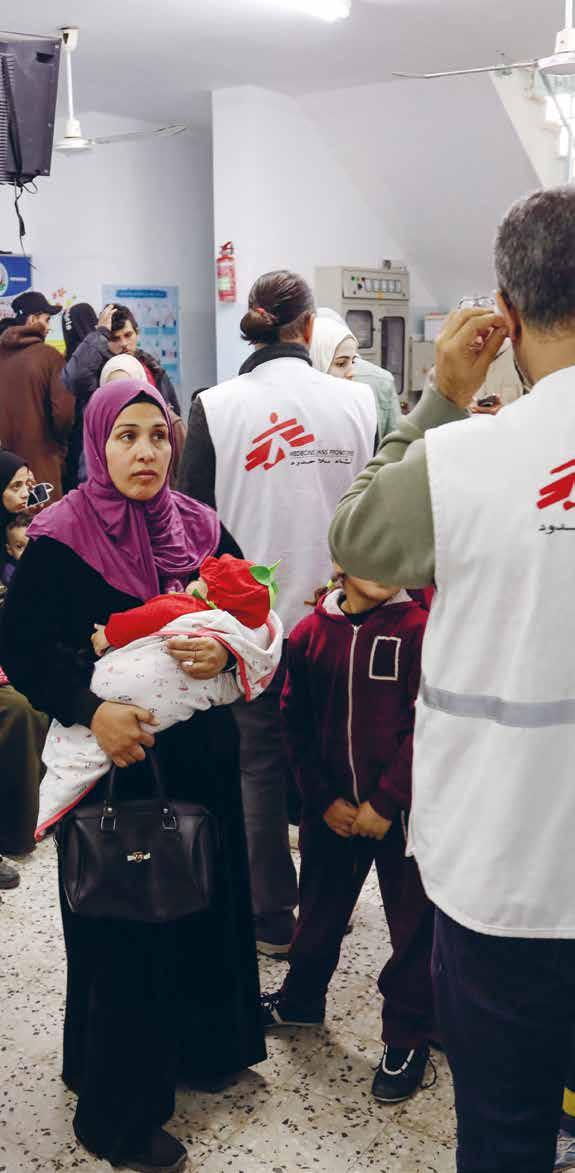
‘Staying alive is a matter of luck’

15 DECEMBER 2023
The water system isn´t working anymore – it has completely collapsed. People are being pushed to the limit, having to fight for their survival. At most, people have one litre of water per day – that’s for drinking, washing and cooking. There is only one shower for 500 people. The ones able to have showers are considered lucky. In the south of Gaza, our teams are distributing 50 to 60 cubic metres of water a day, but this is only a drop in the ocean.
In the south of Gaza, places are so overcrowded that it feels like you are in a packed football stadium. With so many people using the same few toilets, and with no fuel for pumping the water, I´ve seen sewage flowing into the streets where vendors are working, where children are playing and splashing in the filthy black water. You can only imagine the impact on people’s health.
Whatever people want to do, they have to plan it ahead of time: you must think, plan and organise, and then you will find out if you are lucky or not. You want to go to the toilet? When and where do you go when there are hundreds of people queueing for one toilet?
OUT OF FUEL
In some places, there is no fuel or electricity. It´s impacting everything. Without fuel, the grinding mills are not working, so nobody has wheat – no wheat, no food. Trucks coming from Egypt are offloading aid to trucks in Gaza, but without fuel these trucks are unable to move and distribute the aid.
We have seen the devastating loss of life caused by the lack of fuel in hospitals, with generators not working and doctors unable to save people’s lives.
We knew it was just a matter of time before the area we were working in would receive an evacuation order. We had discussed it just two or three days earlier. Then, on 3 December, we were forced to close our clinic and leave Khan Younis. That morning, I was in charge of moving us a few kilometres to the west. This was the most painful day I experienced during my time in Gaza.
I started packing the cars, making sure everything was ready. It was heartbreaking: running away and having to look at Palestinian colleagues and neighbours who had been with us all the time, helping us with everything, and knowing that most
probably I would never see them again. There was no time to thank them all for the good things they had done for us. To tell the truth, I was ashamed.
HOPE IN THE MIDDLE OF A NIGHTMARE
When I arrived in Gaza, it became very clear that whatever impact we are having is solely thanks to our dedicated Palestinian staff. Since day one they have been doing everything to keep saving lives. They’re truly bringing hope in the middle of a nightmare.
Staying alive is only a matter of luck. Most of our staff have been displaced from their homes and have lost loved ones. They know they could die at any given moment but they still greet you each morning with a smile. And when you ask how they are, they reply: ‘I’m okay, I´m still alive.’
Our staff members are making sure that those of us who come from outside Gaza have everything we need, from helping us charge our torches to having food and feeling welcomed. They care not only for their patients, but for everyone around them. They will tell you: ‘I want to help you – I must help you – because I want to help my people.’”
MSF IN GAZA
MSF is horrified by the events that began on Saturday 7 October – both the brutal mass killing of civilians perpetrated by Hamas in Israel, and the attacks on Gaza now being pursued by the Israeli military.
Due to the high number of wounded people in Israel, MSF quickly offered to assist the Israeli Ministry of Health with treating them. Our offer was appreciated but, as of going to print, our assistance has not been required.
MSF has been running medical projects in Gaza for more than 20 years, supporting a health system that is desperately short of both medical staff and supplies.
As of 12 February 2024, MSF medical teams are working in four hospitals in Gaza – An-Najar, Rafah Indonesian, European and Emirati maternity hospital – one primary healthcare facility, Al-Shaboura clinic, and two health posts in Rafah. MSF also supports Nasser hospital in Khan Younis and two hospitals in the north, Al-Awda and Al-Shifa.
To date, MSF does not run medical projects in Israel, which has strong emergency and health services. Since we currently only run medical projects in the Palestinian Territories, our reporting can only reflect the direct witnessing of our patients and staff on the ground in both Gaza and the West Bank.
MSF is an independent, impartial and neutral medical humanitarian organisation. Our neutrality ensures that we can continue to provide emergency medical care in Gaza and in other areas experiencing conflict and war.
6 DISPATCHES SPRING 2024 7
RICARDO MARTINEZ IS AN MSF LOGISTICS COORDINATOR WHO SPENT FOUR WEEKS IN GAZA.
MSF health workers treat people in the waiting area of Al-Shaboura clinic, Rafah, southern Gaza, 16 December 2023. Photograph © Mohammad Abed
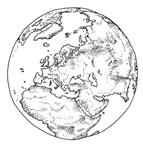
‘Our staff were giving blood’
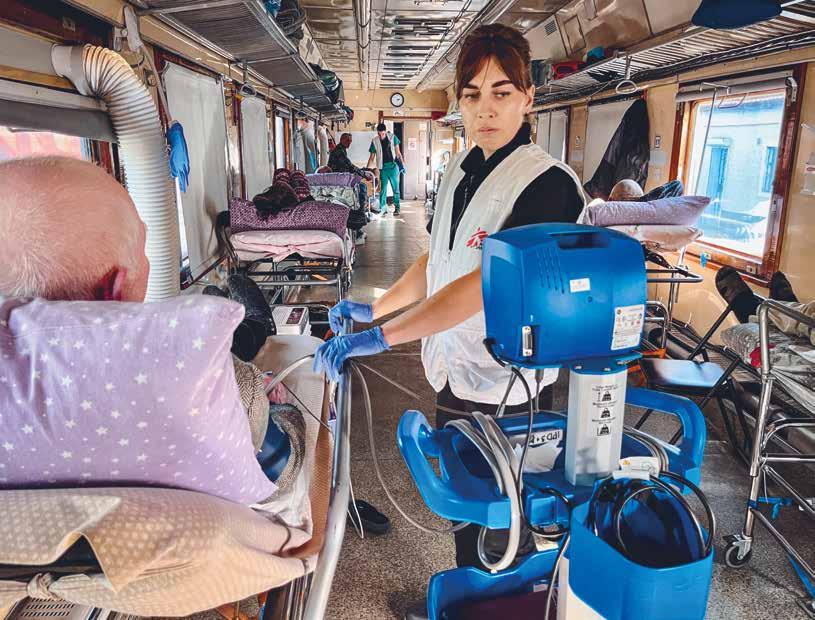

DR KHASSAN EL-KAFARNA IS A UKRAINIAN-PALESTINIAN SURGEON WORKING AT THE MSF-SUPPORTED HOSPITAL IN KOSTIANTYNIVKA, EASTERN UKRAINE. IN BETWEEN ROUNDS OF SURGERY, HE TALKED TO DISPATCHES ABOUT FRONTLINE MEDICAL CARE AND LIVING WITH BOTH HIS HOMELANDS IN STATES OF WAR.
“Right now I’m based at the main hospital in Kostiantynivka. The frontline moves and we’ve been close to it many times. Every day we hear the sound of artillery – both incoming and outgoing – and the sound of explosions on the outskirts of the city.
We see a lot, working here, and we treat all kinds of patients, from people requiring simple surgery through to blast trauma with multiple injuries. Last summer was the worst; we treated a lot of people with blast injuries and had a number of mass casualty incidents. There were at least four incidents like that, possibly more – you lose track.
When a mass casualty incident happens, it’s very sudden. We never get any warning beforehand, as the areas where it happens have no mobile phone network. The first sign we get is a vehicle arriving at the hospital full of injured people. They tell us
what’s happened and that we should expect more arrivals, and then the wounded come in waves.
We start unloading the wounded and rush them to the emergency room, where we begin triaging and giving medical aid. Often, we take multiple patients into the operating theatres at the same time.
It’s always messy. Everyone in the team is running around, fetching medicines and ordering blood components, red blood cells and plasma. Sometimes during an emergency we have to collect blood from donors at the hospital. There have even been times when our medical staff have given blood.
A MASSIVE SURPRISE
Some of the patients you treat really stay with you. There was one 16-year-old girl from Toretsk who had been standing with her father at a bus stop. When the shelling started, he tried to cover her body and protect her. He was hit and killed instantly and she suffered a large wound to the thigh. She lost a lot of blood; by the time she was brought to us, she was clinically dead.
We couldn’t gain IV access so instead we had to gain interosseous access, where you drill a hole in the bone and give medication that way. We intubated her and gave her fluids and managed to get a pulse. That’s when we took her into theatre.
We operated, cleaned up the wound and stabilised her. But when she came out of theatre, her blood
pressure was unstable, so we kept her in the intensive care unit and the emergency doctor and I stayed with her all night. She made it through to the morning, so we decided to transfer her to a hospital in Dnipro that could provide more advanced care. A few days later, we heard that she’d died in hospital. Of course, it’s the nature of the job that you see people die, but it can still be very difficult, particularly when it involves kids. She was 16, she was a teenager, but really she was just a child. It touches you very deeply when these things happen. It’s one of the reasons I didn’t specialise in paediatric surgery; I find it too affecting.
Sometimes you just can’t predict who will survive. One of my patients was a woman of around 55 years old who had been badly injured. We were never certain if it was a bullet or shrapnel, but it had passed through the right side of her chest, leaving a large exit wound around 20 cm in diameter. It had missed major vessels by millimetres, so in that sense she was very lucky.
When the woman was brought to us, we honestly thought she wouldn’t survive the operation. She had broken ribs, a punctured lung and blood in the chest cavity. Even after the operation she was unstable for a long time, her wound became infected and we thought she would die. But we kept on treating her, performing four more operations, and over the weeks she slowly improved. Just over a month after she arrived, we discharged her and she walked out of the hospital smiling. Her recovery was a massive surprise to us.
A GAZA SCHOOLBOY
Before the war in Ukraine, I had no experience of treating these types of injuries. I was working in an emergency hospital in Kyiv and was dealing with typical general surgery cases. When I started working with MSF, I came here to Kostiantynivka and started seeing patients with all kinds of pathologies: blast injuries, orthopaedic injuries, trauma wounds… Initially I was assisting and learning, but very quickly I started to operate on patients as we were so short of surgeons. I was doing five to six operations a week and it was a steep learning curve.
I always wanted to become a surgeon because of where I grew up. I am half-Palestinian, halfUkrainian; I was born in Kyiv but grew up in Beit Hanoun in Gaza. I saw a lot of violence in Gaza: I witnessed many invasions and knew many people who had been killed. I witnessed our house being damaged and soldiers enter our home.
I remember seeing MSF vehicles in Gaza when I was growing up and, although I was a schoolboy and didn’t know much about them, I knew they were doctors who provided people with medical care.
MSF nurse Halyna Milovus checks the blood pressure of a patient on MSF’s ambulance train, 22 October 2023.
Photograph © Verity Kowal/MSF
TRAPPED
My parents are trapped in Gaza at the moment, trying to get out. The first thing I do when I wake up every morning is pick up my phone to see if I have any news from them. It is very difficult. They don’t have electricity, they don’t have much food, they’re in a house full of people. You wake up in the morning and open your eyes and just hope they are still alive.
In a war you can never be completely safe. Things happen – it’s a war. This hospital could be hit. But to work here you have to throw that idea in the trash every day and get on with your work, otherwise you would not be able to function. MSF has good security supervisors, we have evacuation plans, so I leave all that to them and get on with my job.
‘I always wanted to become a surgeon because of where I grew up’
The work that MSF is doing here is important. You can see its contribution in this hospital alone, in terms of the improvements in medical care and the additional support we provide. But for me, the most inspiring aspect is the difference we make to individual people. Patients come to us, we treat them, and many are able to walk away healthy and on the way to recovery. As a doctor, that is very motivating.”
Dr Khassan’s parents and brother managed to leave Gaza in late-2023 and are now living in Ukraine.
8 DISPATCHES SPRING 2024 9
READ MORE AT MSF.ORG.UK/UKRAINE
UKRAINE PHOTOGRAPHY MSF
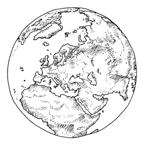
PORTRAITS OF PIONEERS
IN 2003, MSF STARTED PROVIDING FREE TESTING AND TREATMENT FOR HIV PATIENTS IN CONAKRY, THE CAPITAL OF GUINEA. AT THAT TIME, TREATMENT FOR HIV BARELY EXISTED IN THE COUNTRY, AND LIFESAVING ANTIRETROVIRAL DRUGS WERE EXPENSIVE AND OUT OF REACH. FOR TOO MANY PEOPLE, BEING HIV-POSITIVE MEANT A LIFE OF FEAR AND DISCRIMINATION AND AN EARLY DEATH.
Two decades later, the situation has improved dramatically. MSF treats one in five HIV patients across Guinea and stigma surrounding the disease has reduced, thanks to those inspiring individuals who have shown how people with HIV can still live long, healthy and happy lives.
To mark 20 years of this groundbreaking project, photographer Namsa Leuba visited Conakry to document MSF’s work and celebrate our staff and patients.
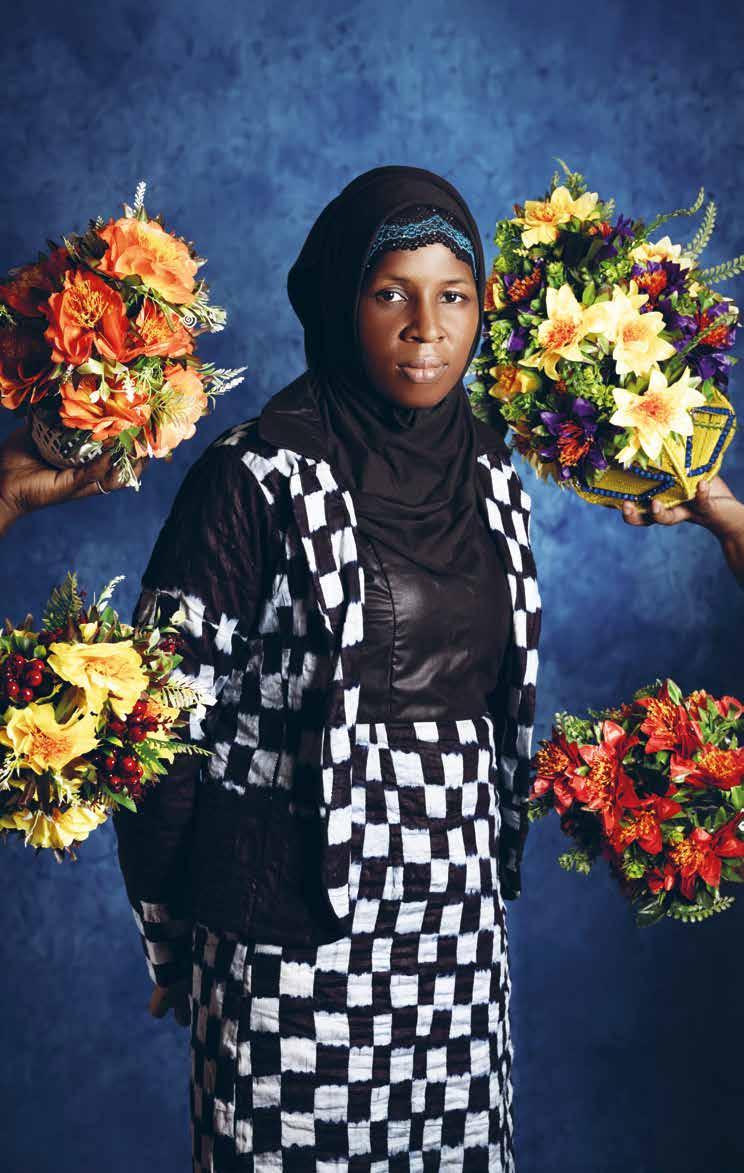
Kadiatou Bodié Baldé is president of a community-based organisation for HIV patients and a person living with HIV.
Iwas married at the age of 13 and my husband passed away some time after. For 10 years I was sick, but I didn’t know what was causing it. No one talked about HIV back then. Later I remarried and discovered I was HIV-positive. That was it. I couldn’t shake it from my mind because, here in Guinea, when you’ve got HIV, you’re seen as debauched and not taken seriously. But that wasn’t how I had lived my life. HIV was not meant for me. When my husband found out my diagnosis, he left me and my children.
I found MSF, I found a doctor and I found community-based organisations that helped me get treatment. The support I received from MSF, from my friends and from the groups saved me from feeling traumatised. I found a job and I was able to care for my children.
Once again I remarried and both my children were born HIV-negative, thanks to the prevention of mother-to-child transmission programme. Today, they are nine and 13. My daughter knows I’m HIV-positive and has become my confidante. I told her everything, to avoid the shock of her finding out the truth from someone else. She’s the one who reminds me to take my medication.
Levels of stigma and discrimination are very high in Guinea and that’s why community-based organisations were created. I’ve been president of the Guinea Hope Foundation as well as president of the network for people affected by HIV/AIDS. These organisations help patients get psychosocial care. They also organise events and host radio shows. Some organisations also manage the distribution of antiretrovirals via decentralised spaces set up by MSF where patients can come and get their treatments easily.
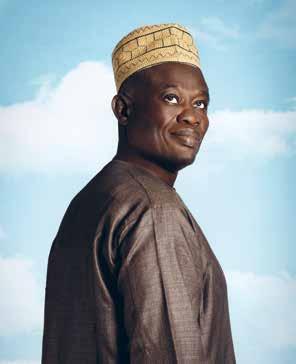
10 DISPATCHES SPRING 2024 11 GUINEA PHOTOGRAPHY NAMSA LEUBA
(Right) Kadiatou Bodié Baldé (Opposite) Hassimiou Camara is an MSF peer educator who has worked for MSF since 2014. “I fight to defend the sick, to give them hope and courage,” he says.
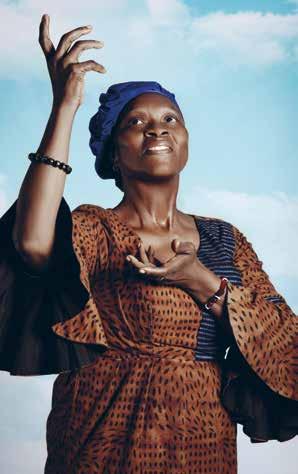
MSF NEVER GAVE UP ON ME
Ignorance is still dominant here. People don’t know about the disease and particularly about how it’s transmitted. Some people still believe you can only get infected through sexual intercourse, whereas it can be spread through cuts during certain ceremonies, in delivery rooms or by way of sharp objects. But I am seeing the change from when I started raising awareness to today. People are now brave enough to say they have HIV. They are no longer mocked or rejected by the entire community like they used to be.
MSF supported me and never gave up on me. I realised I could do something with my life and give back to the community. Today I’m proud to help people, to bring them hope and self-esteem and help them find their path. I want to thank MSF for what it has done for the people of Guinea over the past two decades. I hope that state authorities will make MSF’s expertise their own, because MSF is the gold standard and the lead to follow.”
Cissé Kadiatou is a paediatric HIV doctor at the MSF-supported health centre in Wanindara. “I’ve made one day each week just for children and their mothers to prevent children slipping from view and to encourage them to come back and continue receiving treatment,” she says.
Aboubacar Camara is an MSF peer educator.
‘My role is to share my experiences to help people live positively’

Aboubacar Camara is an MSF peer educator and person living with HIV. I got my diagnosis in 2008. I went to see a doctor who advised I get tested for HIV. I hadn’t even heard of the disease.
When my test results came through, I heard the doctors talking. They had stapled a piece of paper to my notes that said, ‘HIV-positive’. They thought I was illiterate. I looked at the paper and fell off my chair. It was beyond me.
My big brother, who had come with me, said: ‘You just have to accept it; HIV doesn’t kill.’ The doctor prescribed me medication for three months.
After three months I started to get better and I went back to my studies. Once my prescription ran out, I didn’t renew it. I didn’t want the entire town to know my diagnosis, but then the illness got worse. I was living with my uncle at the time. I would normally have meals with the children, but I soon realised that they had begun to shun me.
THE MSF RADIO SHOW
One day, I was listening to a show on the radio in which a peer educator for MSF was talking about HIV and her diagnosis. She spoke the same language as I did. At the end of the segment, they gave out a phone number. I called it and the next day I met up with that same activist. She welcomed me and guided me. She said: ‘If you accept your disease, you will be just like me. I live with HIV, but I’m not going to stop living.’ She suggested I join a communitybased organisation and I agreed. I found comfort in that group. I even forgot that I was sick.
I heard that MSF was looking to hire someone to speak out publicly and tell their story as a peer educator. My family knew my diagnosis by then and I was no longer ashamed to share it with other people. I applied, and they hired me.
Since then, I have told my story publicly and MSF enables me to do that. There have even been documentaries made about me. Now I contribute to teaching people and debunking misinformation about HIV. I’ve spoken on television, in schools and in public forums. Everywhere I can, I’ve spoken about my diagnosis.
My role is to share my experiences, to help people accept their diagnosis, to help them live positively, like me. Those of us who live with HIV are the best people to talk about it.
I also carry out HIV testing and I share my knowledge with other community-based organisations about rapid testing in the community.
MSF is the only organisation today caring for patients with advanced HIV in Guinea.
To this day, despite speaking freely, some people still don’t believe me. They have a hard time believing that someone like me, who has HIV, can speak so openly. But it’s what I know.
God wanted me to meet MSF. That’s why I want to keep up the fight against HIV until the day I die.”
12 DISPATCHES SPRING 2024 13
SEE ALL THE PORTRAITS AT MSF.ORG.UK/PORTRAITS



This is one of those projects that reminds you why MSF exists. It’s about two miles from the border with Sudan and was set up in response to the huge movement of refugees fleeing the war in Sudan. You’ve got a 180-bed paediatric hospital, a 160-bed surgical hospital, mobile clinics and malaria programmes, 600 local staff and 50 international staff, and all the logistical support that comes with that, all of it set up and functioning in a four-to-sixweek time period. I’m not sure any other organisation could do that.
I was the paediatrician in the project and my main role was to support the local staff in the care of children.
I tried to see nearly every patient every day, spend time with the sickest children and ensure we were giving the best quality care we could, as well as sharing skills and knowledge with the rest of the team.
We had between 50 and 100 children coming to us each day and, after assessing them, we admitted around 40-50 to hospital. It was a big undertaking.
I arrived at the beginning of September. There had been a huge amount of violence in the previous months. People had fled Sudan with gunshot wounds, burns and physical trauma from the conflict, but there were fewer cases like that by the time I arrived. Instead, malnutrition and malaria were affecting huge numbers of children.
A WELL-OILED MACHINE
The team worked like a well-oiled machine. We had three malnutrition tents, each with about 40 beds. If you’re severely malnourished, you are sent from
Her survival seemed a long shot, but we were determined to do all we could.
The team were incredible. Keeping an 800-gram baby alive means extremely careful attention to detail over a long period of time. Most of the staff here aren’t specialists, but they are incredibly motivated. Over a number of weeks, they sat with her, checked her vital signs, checked her sugars and corrected them when they were low, checked her temperature and corrected it, ensured her feeding tube was always in place and gave her countless doses of antibiotics. And through it all, they supported the mother psychologically: talking to her, encouraging her, helping her feel she was not alone.
Slowly, the little girl put on weight and, by the beginning of November, she weighed 1,320 grams. That’s still less than optimal, but she was fit enough to be sent home with her mother.
If there was one moment that sums up the incredible effort and spirit of the medical team there, then it was seeing that baby girl survive.
‘WE’RE THERE TO RELIEVE SUFFERING’
Not everybody survives, though. Toward the end of my time in Chad, I’d been working 13-hour days in 45-degree heat in the tents, speaking in my sub-optimal French all day, and I was worn out. I remember going back into the hospital around 10.30 one night to see how the team were doing and to do a quick ward round. There was a 14-year-old girl who was really unwell – she was septic – and I asked one of the doctors to give her fluids and antibiotics while I continued the round.
Suddenly the doctor came running to get me. I ran back with him and the girl was there having a cardiac arrest right in front of us. We began to work on her, we put a needle into her bone to get medicine into her more quickly, but nothing worked and she died.
the emergency room to the first tent, where you’re stabilised and put on low-calorie milk. Once you’re out of danger, you go to the second tent and are put on higher-calorie milk; in the third tent you’re feeding; and then, hopefully, a few days later you’re well enough to be discharged.
Sick children come in all shapes and sizes. We had one newborn brought to us who weighed only 800 grams. To put that in context, in Europe, the optimum weight for a newborn is 3,500 grams. Even in a place with lots of equipment and resources, keeping an 800-gram baby alive is a challenge.
This little girl had been born in a shelter in one of the refugee camps set up nearby. Her mother brought her to us hoping that we’d be able to help.
‘This project reminds you why MSF exists’
I remember going back to where I was sleeping and just sitting in the dark and crying. I began to wonder: I’m so tired, did I miss something? I knew that she was septic, but did I miss just how sick she was? Should I have done more?
One of the skillsets you have to develop working in a place like this is dealing with uncertainty. Sometimes you just don’t know why things have gone wrong and you probably never will know. But you try to turn that negative into a positive. The next day we talked it through as a team and we all tried to learn from the situation.
It’s tough and really the only way to cope with it is to say: that child didn’t survive, but there are 10 others who did, and they wouldn’t have survived if MSF wasn’t here. Because, unfortunately, we’re not there to save every life. We’re there to relieve suffering, do the best we can and help as many people as we can.
I think MSF’s work in Chad is a really good example of just how much can be achieved by motivated people even with simple resources. I felt lucky to be a part of it.”
CHAD PHOTOGRAPHY JAN BOHM/MSF 14 DISPATCHES SPRING 2024 15
MICHAEL MALLEY IS A PAEDIATRICIAN RECENTLY RETURNED FROM ADRE IN CHAD, WHERE 150,000 PEOPLE FLEEING THE CONFLICT IN SUDAN ARE LIVING IN PRECARIOUS CONDITIONS IN MAKESHIFT CAMPS.
A Sudanese woman brings her child to MSF’s clinic in Adré, near the border of Chad and Sudan, to be checked for malnutrition.
MSF’S UK VOLUNTEERS
Afghanistan: Louis Dowse, Project coordinator; Sadhbh
Lee, Doctor; Sarah GranthamHill, Paediatrician; Rachel Crozier, Nurse; Lucy Hart, Doctor
Bangladesh: Sarah Mitchell, Water and sanitation manager; Katherine McCord, Doctor; Florentina Popa, Midwife
Brazil: Laura Guardiola, Nurse
Central African Republic: Caterina Quagliani, Programme manager
Chad: Aoife Nicholson, Project coordinator; Andrew StevensCox, Logistics manager
Democratic Republic of Congo: John Boase, Logistician
Ethiopia: Cara Brooks, Head of mission; Jasmine Sawyer, Paediatrician
Haiti: Eleanor Harvey, Pharmacist
India: Nicole Hart, Deputy medical coordinator; Mary Rimbi, Doctor; Gabriella Bidwell, Doctor; Zareena Mahomed, Doctor
Iraq: Julia Smith, Health promoter
Kenya: Paul Banks, Procurement manager
Lebanon: Caroline Jones, Doctor; Milena Beauvallet, Finance and HR manager
Libya: Sofie Karlsson, Midwife
Myanmar: Jacklyne Scarbolo, Medical team leader; Betsie Lewis, Humanitarian affairs officer
Nigeria: John Canty, Project coordinator; Sarah Clowry, Advocacy manager
Palestinian Territories: Laura Williams, Nurse; Jennifer Hulse, Doctor; David Nott, Surgeon; Jason Dunnett, Finance/HR manager
Serbia: Joan Hargan, Medical team leader
Sierra Leone: Charlie Kerr, Logistician
Somalia: Dana Krause, Head of mission
South Sudan: Gillian Murphy, Project manager; Jean Majoro, Project coordinator; Rachel Coyle, Midwife; Thomas Taylor, Doctor; Paul Snape, Doctor; Stephen Barrett, Doctor
Sudan: Matt Cowling, Advocacy manager; Fabian Erwig, HR coordinator; Ana Moral Garcia, Nurse; Olivia Butters, Water and sanitation coordinator
Syria: Elizabeth Harding, Head of mission
Tajikistan: Ruth Moore, Finance & HR manager
Ukraine: Thomas Marchese, Logistician
Venezuela: Tamsin Nicholas, Nurse
Yemen: Catherine Branthwaite, Paediatrician
Zimbabwe: Michael Parker, Project coordinator
Cover image: A man carries a wounded child into the MSF-run clinic at Rafah
Indonesian Field Hospital in southern Gaza, 27 December 2023. Photograph © MSF
MSF staff run a mobile clinic under a tree in Khadian village, in Abyei Special Administrative Area.
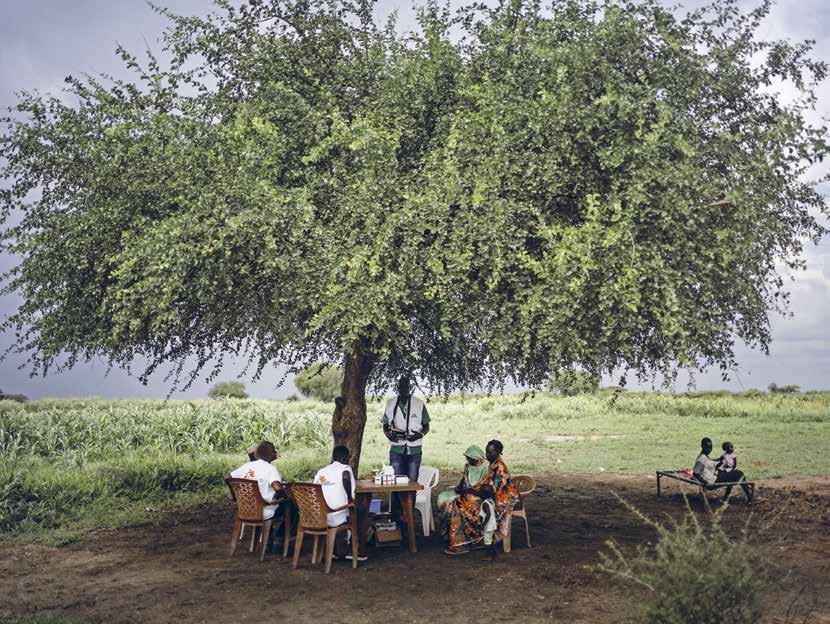
Médecins Sans Frontières/Doctors Without Borders (MSF) is a leading independent humanitarian organisation for emergency medical aid. In more than 70 countries worldwide, MSF provides relief to the victims of war, natural disasters and epidemics, irrespective of race, religion, gender or political affiliation. MSF was awarded the 1999 Nobel Peace Prize.
TEL 020 7404 6600
ADDRESS Médecins Sans Frontières, Chancery Exchange, 10 Furnival Street, London EC4A 1AB
Charity Registration Number 1026588
ABOUT Dispatches is written by MSF staff and sent out quarterly to our supporters to keep you informed about our medical work around the world, all of which is funded by you. Dispatches gives our patients and staff a platform to speak out about the conflicts, emergencies and epidemics in which MSF works. It is edited by Marcus Dunk. It is printed on a wood-free, FSC approved paper and costs £0.76 to produce, package and send using the cheapest form of post. It is an important source of income for MSF and raises three times what it costs to produce. We always welcome your feedback. Please contact us using the methods listed, or email: dispatches.uk@london.msf.org
SIGN UP TO EMAIL
Get the latest MSF news delivered to your inbox. Sign up at msf.org.uk/signup
MAKE A DONATION
You can donate by phone, online or by post. If possible please quote your supporter number (located on the top left-hand side of the letter) and name and address.
LEAVING A GIFT IN YOUR WILL
Have you thought of remembering MSF in your will? Any gift is welcome, however large or small. For more information, call us on 020 7404 6600 or email: legacies@london.msf.org
CHANGING YOUR ADDRESS
Please call 020 7404 6600 or email: uk.fundraising@london.msf.org
CHANGING A REGULAR GIFT
To increase or decrease your regular gift, please call us on 020 7404 6600 or email: uk.fundraising@london.msf.org with your request. Please also get in touch if your bank details have changed.
If you would like to stop receiving communications from us, please contact our Supporter Care team on 020 7404 6600 or email uk.fundraising@london.msf.org and we’ll be happy to help. Thank you for your support.
Photograph © Sean Sutton/ Panos Pictures
